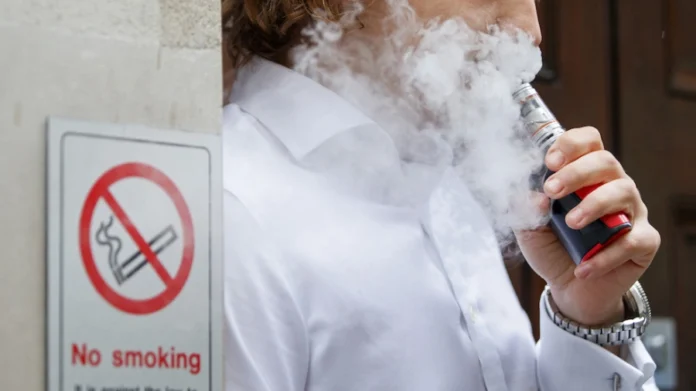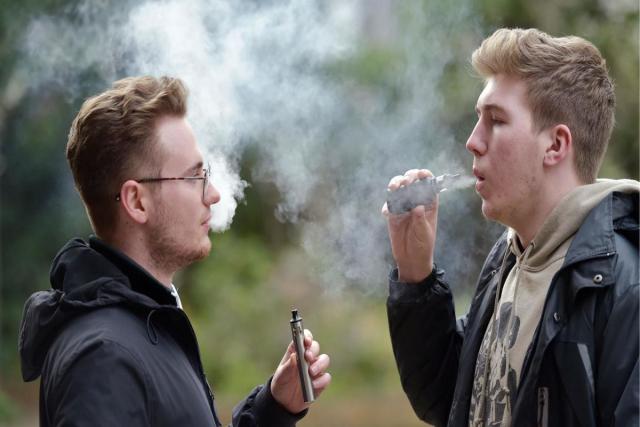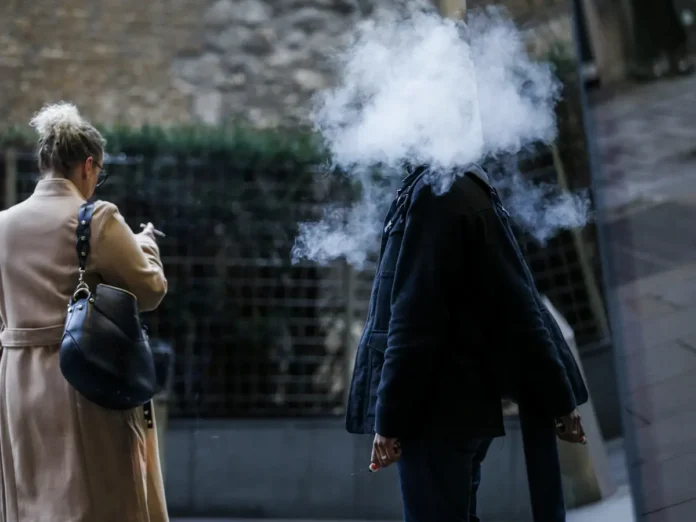Vaping has become a prevalent issue among students in Washington, posing a serious threat to their health and well-being. The rise of the vaping epidemic has created an urgent need for schools to take action and implement effective strategies to combat this growing problem. It is essential to understand the impact of vaping on school environments and the measures being taken to address it. By exploring the collaborative efforts between schools, health agencies, and the community, we can gain valuable insights into how Washington is working tirelessly to protect its students from the dangers of vaping.
Overview of the vape epidemic’s impact on school environments

The vape epidemic has had a profound impact on school environments across Washington. Students who vape not only jeopardize their health but also disrupt the learning atmosphere for others. The use of e-cigarettes has led to an increase in disciplinary incidents, with students caught it during class or in school facilities. Moreover, the proliferation of these devices, coupled with their discreet nature, has made it easier for students to conceal their habits, making detection and prevention more challenging. In response to this challenge, schools have started implementing innovative measures such as vape detectors, which can help identify and deter these activities within school premises. These advanced systems serve as an additional tool in ensuring a safe and healthy learning environment for all.
Implementation of strict no-vape policies in Washington schools

To tackle the vape epidemic head-on, Washington educational institutions have implemented strict no-vape policies. These policies explicitly prohibit the use of e-cigarettes and these devices on school grounds, including classrooms, restrooms, and outdoor areas. By adopting a zero-tolerance approach, academies aim to deter students from this and emphasize the seriousness of this behavior. Additionally, these policies empower academy administrators to take disciplinary action against those found violating the rules.
Collaborative efforts between schools and health agencies to address vaping
Recognizing the need for a multi-faceted approach, schools in Washington have joined forces with health agencies to combat the vaping epidemic. Collaborative efforts involve sharing resources, expertise, and best practices to develop comprehensive strategies that target both prevention and intervention. Health agencies provide schools with up-to-date information on the risks associated with it and the latest research findings. This partnership ensures that these academic institutions have access to accurate information and evidence-based approaches to address the issue effectively.
Education programs highlight the risks and consequences of vaping

Washington schools have recognized the importance of education in preventing vaping among students. They have developed targeted programs that raise awareness about the risks and consequences. These programs educate students about the harmful chemicals found in e-cigarettes, the addictive nature of nicotine, and the potential long-term health effects. By equipping students with knowledge, academies empower them to make informed decisions and resist peer pressure. Such education programs play a crucial role in fostering a culture of prevention and reducing the appeal among students.
Support systems for students struggling with addiction to vaping
Understanding that addiction is a complex issue, academies in Washington have established support systems for students who are struggling with this addiction. Trained counselors and health professionals work closely with affected students to provide guidance, counseling, and resources. These support systems offer a safe space for students to discuss their addiction, address underlying issues, and develop coping mechanisms. By offering personalized support, institutions aim to help students overcome their addiction and promote overall well-being.
Role of school counselors and nurses in identifying and assisting affected students

School counselors and nurses play a vital role in identifying and assisting students affected by it. These professionals receive specialized training to recognize the signs of this addiction and intervene appropriately. They engage in open conversations with students, providing a non-judgmental environment where concerns can be addressed. Counselors and nurses collaborate with other stakeholders to ensure a holistic approach to student well-being.
Integration of vaping prevention into the curriculum across subjects
Washington schools understand that preventing vaping requires a comprehensive approach that extends beyond standalone programs. To achieve this, vaping prevention is integrated into the curriculum across various subjects. Science classes delve into the chemical composition of e-cigarettes, while health classes discuss the short and long-term health consequences. English classes analyze persuasive messaging used by vaping companies, fostering critical thinking skills.
Engagement of parents and guardians in combating the vaping epidemic

Recognizing the critical role of parents and guardians, Washington schools actively engage them in combating the vaping epidemic. Academies organize informative sessions, workshops, and parent-teacher meetings to educate parents about vaping trends, risks, and prevention strategies. These initiatives aim to empower parents with the knowledge and skills needed to have meaningful conversations with their children about the dangers of vaping. By fostering strong partnerships between academies and parents, Washington is building a united front against the vaping epidemic, ensuring consistent messaging and support for students.
Collaboration with community organizations to raise awareness and provide resources
Washington schools understand the importance of collaboration with community organizations to tackle the vaping epidemic comprehensively. Schools partner with local health departments, youth organizations, and advocacy groups to raise awareness and provide resources. Community organizations often conduct workshops, awareness campaigns, and mentorship programs to support academic efforts. By tapping into the resources and expertise of these organizations, schools expand their reach and deliver impactful messages about the dangers of vaping. This collaboration ensures a collective and sustained effort to protect Washington students from the harms of vaping.
Conclusion: The ongoing battle to protect Washington students from vaping

The vape epidemic continues to pose a significant challenge for schools in Washington. However, through stringent policies, collaborative efforts, education programs, and strong community engagement, schools are working tirelessly to protect their students. By addressing vaping as a collective responsibility, Washington is setting a precedent for other regions to follow. Schools, health agencies, parents, and communities must remain steadfast in their commitment to educating and supporting students in their fight against vaping. Together, we can create a safer, healthier environment for the youth and ensure a brighter future for Washington.









